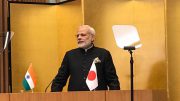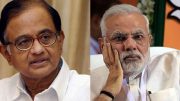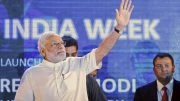Joblessness in India is running at a five-year high of 5% of the 15-plus-years work force. Over a third of working people are employed for less than a year and 68% of households are earning up to only Rs 10,000 per month, according to a new employment-unemployment (EU) survey report conducted by the Labour Bureau.
Over 7.8 lakh persons in 1.6 lakh households were surveyed across the country between April and December 2015. Expectedly, urban areas continue to provide more and better paying jobs compared with the rural areas. While 82% of job seekers get year-round jobs in urban areas, just 53% of rural job seekers manage to get such security.
About 42% of workers in rural areas work for less than 12 months in a year, a result of dependence on seasonal agriculture work. Unsurprisingly, this means that 77% of the rural households end up with an average monthly income of less than Rs 10,000. In urban areas, about half the households earn between Rs 10,000 and Rs 50,000 per month.
These findings of the first large sample survey after the Modi government took power in June 2014 show that even after more than a year of seeing the new government’s policies in action, the situation on the ground continues to be same as in the preceding UPA’s rule. It shows a continuation of a distressing job situation — and hence economic status — that was reflected in earlier surveys like the 68th round of NSSO and the Socio-Economic & Caste Census (SECC) in 2011-12.
What does 5% unemployment and 35% underemployment mean in hard numbers? Projecting from Census 2011 figures, India had a 15-years-and-older labour force of about 45 crore.
So, 5% of that is a whopping 2.3 crore persons. In addition, there are those who work but not for the whole year, signifying hidden unemployment. This works out to nearly 16 crore persons.
Women’s employment continues to stagnate with 8.7% of women in the labour force without jobs.
Comparison to previous surveys done by the labour bureau show that the unemployment rate rose from about 3.8% in 2011 to 4.9% in 2013. This was a period of relative economic slowdown compared to earlier in the decade. But growth has been recorded at 7.3% in 2015-16 — yet the jobs situation has worsened. The Modi government’s pronouncements for job creation, like Make in India, Start-Up India and Digital India do not seem to have had the desired impact.
Another 33% of households earn their living through casual employment. Regular wage or salary earning households make up just 17% of all, although this is the kind of work that pays more with 43% of people earning more than Rs 10,000.




Be the first to comment on "Joblessness in India is at 5 year high, is this called acche din"